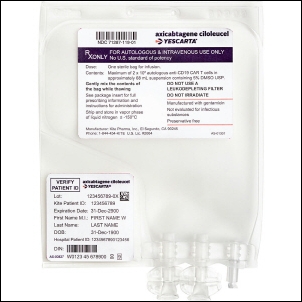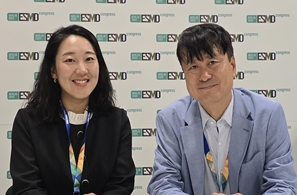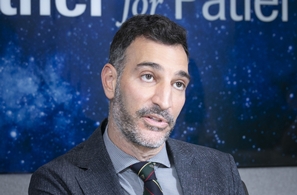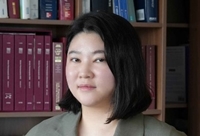- Four CAR-T therapies to compete for 'Kymriah's mkt position'
- by Whang, byung-woo | translator Hong, Ji Yeon | Aug 18, 2025 06:02am
With Kymriah (tisagenlecleucel) from Novartis Korea being the only option currently reimbursed, the impact of Yescarta, which has shown prominence in the global CAR-T market, is highly anticipated.
Furthermore, with the expected approval of Curocell's next-generation CAR-T therapy, Rimqarto, this year, various factors are expected to be considered in the choice of DLBCL treatments.

Yescarta received authorization for the treatment of 'adult patients with Diffuse Large B-cell Lymphoma (DLBCL) who relapse or are refractory within 12 months of first-line chemoimmunotherapy' and 'adult patients with relapsed or refractory DLBCL and Primary Mediastinal B-cell Lymphoma (PMBCL) after two or more lines of systemic therapy.'
Administration is required to be performed only at certified medical institutions, and certified medical institutions must have tocilizumab readily available on-site.
The authorization also specifies that at least two doses of tocilizumab per patient must be secured before Yescarta administration in case treatment for Cytokine Release Syndrome (CRS) is needed.
Yescarta is currently a leading therapy in the CAR-T treatment market. This is because Yescarta has secured a broader range of indications than Kymriah, which is limited to third-line therapy.
First approved by the U.S. FDA as a third-line therapy in October 2017 and by the EU in 2018, Yescarta has since expanded its scope to include second-line therapy. In 2021, it became available to treat follicular lymphoma.
In terms of sales, its revenue surged by 67%, from $695 million (approximately KRW 966.4 billion) in 2021 to $1.16 billion (approximately KRW 1.6127 trillion) in 2022. The growth continued, reaching $1.498 billion (approximately KRW 2.0827 trillion) in 2023, a 29% increase from the previous year.
However, since the rapid growth of late entrants like Carvykti (ciltacabtagene autoleucel, Janssen) and Breyanzi (lisocabtagene maraleucel, BMS) starting last year, the pace of revenue increase has slowed.
In its recently announced Q2 sales for this year, Gilead reported that Yescarta recorded $393 million (approximately KRW 550 billion), a 5% decrease from the previous year.
The reason for the anticipation surrounding Yescarta is its indication. Kymriah's indication is for 'adult patients with relapsed or refractory DLBCL after two or more lines of systemic therapy.'
For this reason, Gilead Sciences Korea is reportedly planning to prepare for reimbursement for the newly approved second-line therapy, rather than the third-line therapy, as Kymriah is already reimbursed for the third-line setting, making reimbursement for Yescarta at this stage less difficult.
While new drugs of bispecific antibodies are receiving approval and reimbursement, CAR-T therapies still hold a preemptive treatment status. If Yescarta receives reimbursement, it is expected to quickly establish itself in the domestic market, given its global influence.
Curocell Prepares for Rapid Commercialization…"Efficacy and Supply Still the Advantages"
Another variable is that Curocell's Rimqarto is awaiting approval. Rimqarto has been selected as the second drug for the Ministry of Health and Welfare's 'Concurrent Application-Evaluation-Negotiation Pilot Program' and is currently undergoing review by the MFDS.
While there are observations that the approval might be delayed beyond the initially expected third quarter due to delays in the review process, as it is the first domestically developed next-generation CAR-T therapy in Korea, the prevailing view is that approval will likely happen within the year.
Once approved, it is expected to have an advantage in reimbursement entry because the reimbursement evaluation and price negotiation will be conducted simultaneously with the MFDS approval application process.
In particular, the company is preparing for rapid commercialization by establishing a comprehensive solution, 'CUROLINK,' which tracks and manages the entire process from prescription to administration in real time.
However, Rimqarto must keep Yescarta's approval in check, as it has the same indication as Kymriah.
Concerning this, Curocell's position is that its competitiveness will remain valid because, when compared to Curocell's Rimqarto, Yescarta, and Kymriah are still inferior in terms of supply period, efficacy, and safety in the domestic market.
A Curocell official stated, "Yescarta's entry into the Korean market and the emergence of other competing products like bispecific antibodies are always open possibilities," and added, "Yescarta still requires sending the patient's blood overseas for CAR-T manufacturing and then re-importing it into Korea, placing it in an inferior position compared to Curocell's Rimqarto in terms of rapid supply."
Furthermore, according to an IR document released by Curocell, Yescarta showed a complete remission in 54% of patients who participated in the clinical trial. In contrast, Rimqarto's clinical trial showed a complete remission in 67% of participants.
The Curocell official explained, "Yescarta's CR rate of 54% was far superior to Kymriah's 40%, which led to a decrease in Kymriah's sales and an increase in Yescarta's sales. However, when Breyanzi, with a CR rate of 53%, entered the market with a similar CR rate to Yescarta, it began to share the market, causing a slight decrease in Yescarta's sales."
And added, "Considering this, Rimqarto's CR rate of 67% is higher than both Yescarta and Breyanzi. Given that this is a one-time reimbursed treatment for late-stage cancer patients, We believe Rimqarto will have a competitive advantage in the market."
-

- 0
댓글 운영방식은
댓글은 실명게재와 익명게재 방식이 있으며, 실명은 이름과 아이디가 노출됩니다. 익명은 필명으로 등록 가능하며, 대댓글은 익명으로 등록 가능합니다.
댓글 노출방식은
댓글 명예자문위원(팜-코니언-필기모양 아이콘)으로 위촉된 데일리팜 회원의 댓글은 ‘게시판형 보기’와 ’펼쳐보기형’ 리스트에서 항상 최상단에 노출됩니다. 새로운 댓글을 올리는 일반회원은 ‘게시판형’과 ‘펼쳐보기형’ 모두 팜코니언 회원이 쓴 댓글의 하단에 실시간 노출됩니다.
댓글의 삭제 기준은
다음의 경우 사전 통보없이 삭제하고 아이디 이용정지 또는 영구 가입제한이 될 수도 있습니다.
-
저작권·인격권 등 타인의 권리를 침해하는 경우
상용 프로그램의 등록과 게재, 배포를 안내하는 게시물
타인 또는 제3자의 저작권 및 기타 권리를 침해한 내용을 담은 게시물
-
근거 없는 비방·명예를 훼손하는 게시물
특정 이용자 및 개인에 대한 인신 공격적인 내용의 글 및 직접적인 욕설이 사용된 경우
특정 지역 및 종교간의 감정대립을 조장하는 내용
사실 확인이 안된 소문을 유포 시키는 경우
욕설과 비어, 속어를 담은 내용
정당법 및 공직선거법, 관계 법령에 저촉되는 경우(선관위 요청 시 즉시 삭제)
특정 지역이나 단체를 비하하는 경우
특정인의 명예를 훼손하여 해당인이 삭제를 요청하는 경우
특정인의 개인정보(주민등록번호, 전화, 상세주소 등)를 무단으로 게시하는 경우
타인의 ID 혹은 닉네임을 도용하는 경우
-
게시판 특성상 제한되는 내용
서비스 주제와 맞지 않는 내용의 글을 게재한 경우
동일 내용의 연속 게재 및 여러 기사에 중복 게재한 경우
부분적으로 변경하여 반복 게재하는 경우도 포함
제목과 관련 없는 내용의 게시물, 제목과 본문이 무관한 경우
돈벌기 및 직·간접 상업적 목적의 내용이 포함된 게시물
게시물 읽기 유도 등을 위해 내용과 무관한 제목을 사용한 경우
-
수사기관 등의 공식적인 요청이 있는 경우
-
기타사항
각 서비스의 필요성에 따라 미리 공지한 경우
기타 법률에 저촉되는 정보 게재를 목적으로 할 경우
기타 원만한 운영을 위해 운영자가 필요하다고 판단되는 내용
-
사실 관계 확인 후 삭제
저작권자로부터 허락받지 않은 내용을 무단 게재, 복제, 배포하는 경우
타인의 초상권을 침해하거나 개인정보를 유출하는 경우
당사에 제공한 이용자의 정보가 허위인 경우 (타인의 ID, 비밀번호 도용 등)
※이상의 내용중 일부 사항에 적용될 경우 이용약관 및 관련 법률에 의해 제재를 받으실 수도 있으며, 민·형사상 처벌을 받을 수도 있습니다.
※위에 명시되지 않은 내용이더라도 불법적인 내용으로 판단되거나 데일리팜 서비스에 바람직하지 않다고 판단되는 경우는 선 조치 이후 본 관리 기준을 수정 공시하겠습니다.
※기타 문의 사항은 데일리팜 운영자에게 연락주십시오. 메일 주소는 dailypharm@dailypharm.com입니다.
- [Op-Ed] Patients, no time left for 'new drug comb therapies'
- Special Contribution | Eo, Yun-Ho









